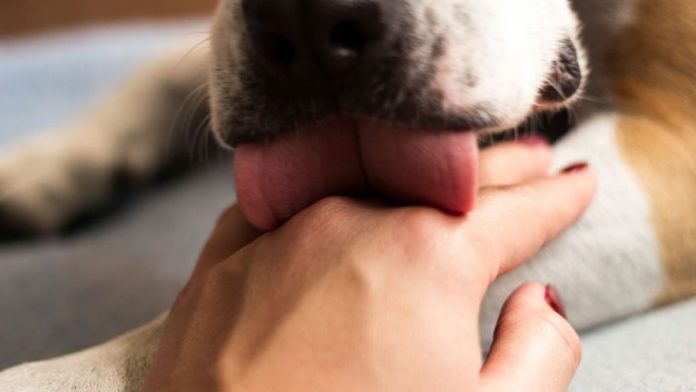The 63-year-old man from Bremen, in northern Germany, visited hospital after developing symptoms including fever, breathing problems and a severe rash on his face and legs.
The previously healthy man was admitted to hospital and placed on a strong course of antibiotics but his condition deteriorated and he died of septic shock sixteen days later.
The European Journal of Case Reports in Internal Medicine reported he had been infected by a bacteria called Capnocytophaga canimorsus transmitted from his pet dog.
Most people who have contact with a dog or cat do not become sick. People with a weakened immune systems who have difficulty fighting off infections (for example, people with cancer or those taking certain medications such as steroids) are at greater risk of becoming ill.
Most Capnocytophaga infections occur in adults over 40 years of age. However, cases have also been diagnosed in young children.
Capnocytophaga germs can cause serious illness in pregnant women and their unborn babies. Infection during the last few weeks of pregnancy can lead to inflammation of the membranes that surround the baby in the womb, a condition known as chorioamnionitis. In the newborn, it can also cause low birth weight, and it can lead to serious infection of the bloodstream or body tissues, known as sepsis.
Prevention of Capnocytophaga Infection
Learn how to prevent dog bites and what to do if you are bitten by a dog or cat. If you are at a higher risk of infection with Capnocytophaga germs, it is important to seek medical care promptly.
If you start having symptoms within 14 days of being bitten, get medical care immediately. Tell your health care provider that you were recently bitten by an animal.
About 3 in 10 people (30%) who develop serious infections with Capnocytophaga germs die. Some infections can lead to death within 24 to 72 hours after symptoms start.
If you have been bitten by a dog or cat, wash the bite area right away with soap and water, and call your doctor, even if you don’t feel sick. This is because dog and cat bites can pose a risk for rabies, as well as Capnocytophaga.
People may be infected after close contact with a dog or cat without being bitten. If you are at higher risk of infection, speak with your doctor about how to protect yourself when you have contact with pets. Also, see the Pets page for information about safer contact with pets.















